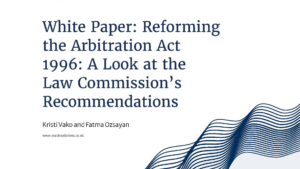How has Brexit affected workers rights?
Have you got a question?
A year or more on from the EU-UK Trade and Cooperation Agreement, we review whether Brexit has led to any changes to workers’ rights. Although much of the messaging prior to the signing of the agreement outlined Britain’s ability to reduce regulation, softening rights of workers did not happen.
Why have workers’ rights remained aligned with European rights?
The main reason that workers’ rights remain aligned with Europe is because the agreement outlines that neither the EU or UK can have a competitive advantage over the other. Therefore, workers’ rights and employment standards are intrinsically linked with the EU. Should the government make changes to employment laws, it could lead to a competitive advantage for business and therefore in contravention of the agreement with the EU.
The government cannot afford to amend employment rights if it leads to retaliatory EU action and therefore it is unlikely laws will change.
However, the European Commission plans to implement strengthening employment rights to gig economy workers. The plan is to ensure that gig economy workers gain rights of full-time employees. Currently, they need to prove they are employees to gain employment rights. Large gig economy companies that trade across Europe may need to implement the rules despite Britain being outside the EU.
Currently, the government are not looking to reduce workers’ rights but even if they do may need to meet the standards implemented in Europe. However, there may be small reforms to employment law, that do not rock the boat so that politicians can continue the ‘taking back control’ rhetoric.
The government are likely to look at the protections surrounding paid holidays, maternity rights and removing the limits to a working week. Given that a recent parliament vote meant these rights can now expiry, it would suggest a new government bill on workers rights.
But the recent news involving Twitter and workers rights, has put these issues directly in the mind of the British public. Given the cost of living crisis, workers are needing protection.
Should your company or you need employment advice please contact us on 020 3051 5060 or visit our employment page for more information.
Book a call back
Share this article
Got a question?
Please complete this form to send an enquiry. Your message will be sent to one member of our team.
Related posts

Judgment in Lipton v BA Cityflyer Ltd (10 July 2024)
Today the UK Supreme Court handed down its decision in Lipton v BA Cityflyer, long awaited after almost 5 years of litigation, unanimously

Reforming the Arbitration Act 1996: A Look at the Law Commission’s Recommendations
Have you got a question? Enquire Now Kristi Vako and Fatma Ozsayan have looked at the new recommendations published by the Law Commission.

Redefining loyalty: Tesco’s brand evolution amidst Legal challenges
Tesco was embroiled in a legal battle against Lidl that reached the Court of Appeal over claims arising from alleged infringement of copyright

Artificial Intelligence and its Future Impact on Employment Law
Artificial Intelligence (AI) is rapidly transforming various aspects of our lives, and one area where its impact is becoming increasingly significant is in the realm of employment law.


